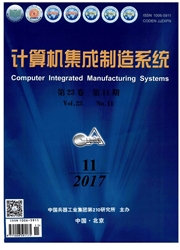

 中文摘要:
中文摘要:
为研究非瞬时补货下的易变质品供应链协调问题,以单供应商与单销售商组成的二级易变质品供应链为研究对象,分别建立分散决策与集中决策下批量对批量供应的供应链单位时间总成本函数。通过比较发现,在非瞬时补货模式下,集中决策比分散决策的供应链单位时间总成本更低,但会导致销售商的单位时间总成本增加。为了补偿集中决策下销售商的成本损失,引入数量折扣合同来协调供应链;协调结果显示:当供应商提供最优数量折扣合同时,销售商和供应链能同时实现最小单位时间成本。采用数值算例对协调结果进行验证,并对变质率和补货速率进行了灵敏度分析,计算结果表明供应链的单位时间总成本分别随着变质率和补货速率的增加而增加。
 英文摘要:
英文摘要:
To research the supply chain coordination of deteriorating items under non-instantaneous replenishment, by taking a two-echelon supply chain of deteriorating items consisted of a retailer and a supplier as an object, the model of supply chain total cost per unit time in the decentralized making-decision and the centralized making-decision was established separately with lot-for-lot replenishment policy. Through the comparison, the supply chain total cost per unit time in the centralized making-decision was lower than in the decentralized making-decision, but the retailer's total cost per unit time was increased. For compensating the cost losses of retailer under the centralized decision, a quantity discount strategy was provided to coordinate the supply chain. The coordination result demonstrated that when supplier provided the optimal quantity discount contract, the minimum total cost per unit time of retailer and supply chain could be realized at the same. The numerical example was used to verify the results of coordination, and the sensitivity analysis for deteriorating rate and replenishment rate were made. The results showed that the supply chain total cost per unit time was increased with the increasing of deteriorating rate and replenishment rate.
 同期刊论文项目
同期刊论文项目
 同项目期刊论文
同项目期刊论文
 期刊信息
期刊信息
